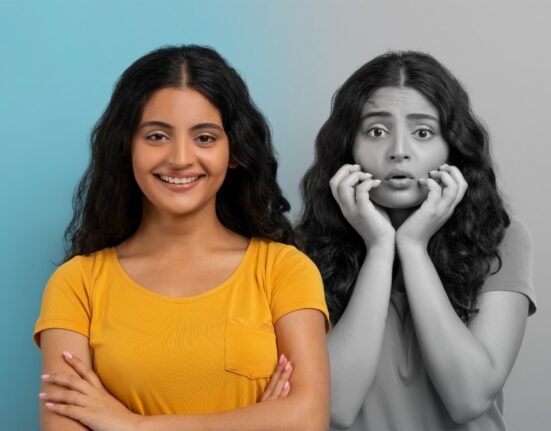When we imagine a diplomat, we see someone who has a friendly smile on their face, shaking hands with foreign politicians. Diplomacy isn’t just confined to peacemakers between nations, but it’s also known as a character trait- a skill that can be beneficial in our everyday lives. It can benefit us at work, relationships with our partners, friends, neighbors and customers. In this article, we will understand what diplomacy really is and what it takes to become a diplomat.
What is diplomacy?
Diplomacy is the art and science of fostering peaceful relation between nations, groups or individuals. In diplomacy, representatives of groups discuss on certain matters of conflict, trade, environment, technology or security. The primary goal of diplomacy is to maintain a peaceful relationship between two parties. Understanding diplomacy in today’s era is crucial to maintain global stability and foster cooperation than war.
Diplomacy requires skillful negotiation, cultural understanding, and strategic thinking during discussions and debates. Knowledge of international law, politics, economics and relevant fields is also required. Diplomacy is conducted by diplomats who represent international organizations, with the aim to protect their interests while they maintain a peaceful relationship with others.
An example of a situation:
During a heated argument between two children, a mother rather than taking sides, calmly approaches the situation. She acknowledges and listens to the perspectives of both the children and encourages them to express their concerns. She guides them in finding a compromise. By fostering open communication, she helps them both resolve the conflict by teaching both her children some resolution skills.
Also Read: What Is Asperger’s Syndrome?
United Nations (UN): First organization to enforce diplomacy
In the 20th century, when international conflicts took place, an international organization called United Nations (UN) emerged to promote cooperation among nations. United Nations played a large role to incorporate diplomacy. The main body of UN, the General assembly, has 195 members. Summit meetings, were where diplomacy grew, as government officials and national leaders of countries would discuss global issues, promote understanding, and build diplomatic relations. UN organization was actively involved in resolving conflicts and finding peaceful solutions to disputes.
The UN has been actively involved in resolving conflicts between nations, like Arab-Israeli conflict, the Korean War, and more recent conflicts in the Middle East and Africa. UN agencies, foster international cooperation to address humanitarian issues, and global challenges. This includes poverty, disease, natural disasters, climate change, and more. It also contributes to the development of international law through the International Court of Justice and the negotiation of treaties and conventions. Through diplomatic efforts and international cooperation, the UN works to address human rights violations, promote equality, and advance justice on a global scale
Conflict-Resolution
A diplomatic person knows how to approach an idea without causing conflict. Diplomats aim to present ideas to minimize negative reactions. They work to avoid crisis by carefully navigating sensitive issues, and anticipate potential negative consequences of their actions or statements. A diplomat reaches an argument with other people in a sensitive and respectful way, without hurting anybody’s emotions. Instead of impulsively responding to an opposing opinion, a diplomat responds thoughtfully. They use sensitive and respectful communication as they are aware of the potential impact of words and actions. They believe that respect is fundamental for building relationships and achieving consensus.
According to diplomacy, negotiation and decision-making that is inclusive to all parties is the solution to prevent conflict (that may escalate into wars) between states.
Recall the time when Mahatma Gandhi, the leader of Indian Independence movement against British Colonial rule, was known for his nonviolent resistance and civil disobedience. Gandhi’s principles and actions had a profound impact on diplomatic and political development in his time. Gandhi advocated for the importance of ‘negotiation and dialogue’ to seek a common ground for resolution.
Also Read: Tips to Fill Communication Gap Between Parent and Child
Diplomacy requires skills to navigate conflict resolution. Let’s look at what kind of skills diplomats have:
Characteristics of Diplomats
Traditional Skills: Empathy and Active Listening
Empathy is the ability to put ourselves in another person’s shoes. Diplomats are able to actively listen, and understand both sides’ perspectives of the problem. They use this aspect of emotional intelligence to critically analyze the situation. Practically, diplomats require a high level of empathy and social skills. In today’s age, they also have to adapt and understand modern technology.
Contextual Adaptability:
Diplomats should be able to adjust to and comprehend the diverse context in which their partners operate. Being aware of their cultural nuances, historic backgrounds, and political landscapes. If you are able to talk to your partner in their local language, it may foster a better understanding and respect for the culture and identity of the people involved.
Also Read: Psychological Insights in Journalism
Social intelligence is highly required in diplomats.
According to Johannes Lang, a psychologist who researched on the psychological mechanisms of war and violence, believes that emotions play a big role in the psychology of diplomacy. He said that to be able to have a peaceful debate, some feelings such as anger, and diplomatic disgust should be hidden. Maintaining a composed and professional demeanor is crucial in negotiations to avoid escalating tensions. And some emotions like empathy should be cultivated. Empathy allows diplomats to understand their concerns and perspectives. It allows the cultivation of positive emotions, maintaining decorum and professionalism. By doing this, diplomats create an environment that is conducive to constructive dialogue.
Restraining from Cognitive Bias
Ethical Diplomacy requires diplomats to be more conscious and aware of their own biases, perceptions and judgments when approaching a solution to a problem. Cognitive Biases are the beliefs and values that people hold that may interfere with reaching an objective decision. Diplomats have to consciously be aware of whether their preconceived notions about a particular problem is interfering in their decision-making.
For example, Confirmation bias may lead a diplomat to selectively seek and interpret information that confirms their pre-existing beliefs. Stereotyping and prejudice (also another cognitive bias) involves applying generalization to individuals or groups. In case diplomats rely on these stereotypes, it can lead to a lot of misunderstandings and strained relations. Constant awareness and questioning self-perspective biases can help minimize their influence on decision-making.













Leave feedback about this